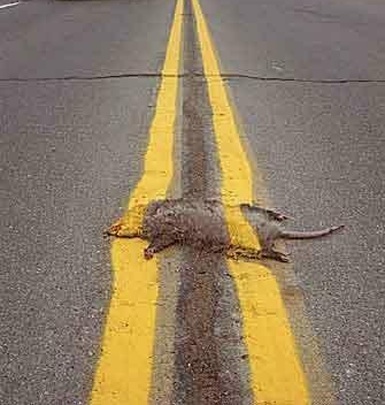"Don't believe the headlines that the fight is over."

January 17, 2009
By Tom DeWeese
NewsWithViews.
Copyright 2009
On January 6, 2009, The Dallas Morning News carried a headline which read “Trans Texas Corridor is dead, TxDOT says.” The article went on to report, “The Texas Department of Transportation announced this morning that it has officially killed the Trans Texas Corridor, saying that despite the project’s visionary aspects, it is clearly not the choice of Texans.”
The fact that TxDOT is taking this action to disown the Trans Texas Corridor is testimony to the incredible job by grassroots activists who have opposed the TTC and the Security and Prosperity Partnership (SPP). We have made life miserable for these officials who have tried to force such policy on us in virtual secrecy. They’ve been caught and so they have bailed out.
The “American Land Foundation” and “Stewards of the Range”, two major opponents headed by Dan and Margaret Byfield, have been successful in organizing 9 local commissions in communities directly in the path of the TTC. Those commissions are largely responsible for delaying and blocking TTC routes.
Said Byfield, “While their statement has largely been released for political reasons, they are at least retreating and regrouping – a major victory for the nine local government commissions formed in Texas to fight the TTC…” Byfield went on to explain that the TxDOT pronouncement is a direct result of grassroots opposition to the TTC. “Since the first local government commission was formed and began using the coordination strategy developed by Fred Kelly Grant, TXDOT has had to make several changes in their strategy to implement the super corridor concept.” He went on to detail the way TxDOT has changed its strategy over the past year as opposition grew:
1 - Their environmental studies have been delayed for over a year as they are challenged by the local governments through coordination.
2 - They scrambled to form “corridor advisory committees” and “corridor segment committees” all under their control to give the appearance they were listening to local citizens, after the first commissions were formed.
3 - They changed their preferred alternative on the I-69 TTC route after three commissions had been established on the new corridor path. (We expect them to go back to the new corridor concept if they can find a way around the local government commissions.)
4 - And today, they announce they are no longer pursuing the full TTC concept, making with it key concessions that indicate a step back for TxDOT and the Spanish firm holding the first design/build contracts.
5 - Concluded Byfield, none of these concessions would have occurred if the nine local government commissions had not formed and required the agency to coordinate the project with them. Although we have caused them to alter their approach, don’t believe the headlines that the fight is over.
Opponents to the TTC should be very proud of their accomplishment in forcing TxDOT's
very powerful and determined hand. It is a testament to the fact that grassroots activity is a powerful force.
However, we must also stay vigilant to TxDOT’s next move. Just because they are conceding defeat on their first effort, certainly does not mean they are giving up. History has shown us that, when faced with strong opposition, the perpetrators of these bad polices go underground like the bugs they are and then resurface with a new plan – which is just the old plan with a new name.
Key to the real agenda is this quote from the news report: “Each of the dozens of projects that were linked together under the rubric of the TTC – including the Loop 9 project in Dallas and the I-69 project in the south – will remain as stand-alone projects.” That’s an obvious smokescreen to make Texans think the TTC is dead.
TTC opponents are not falling for the TxDOT claim of surrender. Terri Hall, Founder/Director of “Texans Uniting for Reform & Freedom” (TURF) and a major activist against the TTC said, “It's clear from the TxDOT Director's speech, that it's only a name change and the Trans Texas Corridor is, in reality, going underground. Hall cited a quote from the Austin American Statesman newspaper which said “Those 'smaller projects' will apparently include the 300-plus miles of what has been called TTC-35 from San Antonio to the Oklahoma border and the I-69 project from the Rio Grande Valley to Texarkana. But they will not be called the Trans-Texas Corridor."
As The Houston Chronicle put it, "The renewed effort now will operate under the name 'Innovative Connectivity Plan."
Said Hall, “No law has been changed, no minute order rescinded, no environmental document re-done (as is required by federal law), and there are still two contracts signed giving two Spanish companies the right of first refusal on segments of the corridor previously known as TTC-35 & TTC-69. So by every real measure, the Trans Texas Corridor goes on full steam ahead. What today's hype was about is a political ploy to make the public go back to sleep while it gets built under a different name. While we welcome genuine responsiveness from TxDOT and a true repeal of the Trans Texas Corridor, this hardly qualifies.”
Celebrate this first victory and get ready to engage the enemy again. TxDot’s action gives us one major message – we have them scared. We can and will stop the Trans Texas Corridor.
To search TTC News Archives click
To view the Trans-Texas Corridor Blog click







